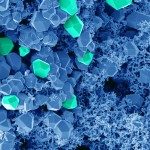Présentation
THE STRUCTURAL BASIS OF SMS (SHORT MOTIF SEQUENCE) – MEDIATED COMMUNICATION BETWEEN PROTEINS: CHARACTERIZATION, MODELING AND MANIPULATION
Main speaker : Ora Schueler-Furman, from School of Medicine-IMRIC-Microbiology and Molecular Genetics The Hebrew University of Jerusalem
Date : 08-02-2018 at 02:00 pm
Location : Auditorium Francois Jacob – BIME (26) ,Institut Pasteur, Paris
Many important regulatory interactions are mediated by short linear motif sequences, which are often embedded in disordered protein regions. These interactions tend to be transient, and therefore pose special experimental challenges. In order to develop precise tools for the manipulation and study of such interactions, accurate structural models are needed. However, due to weak binding affinity and the considerable flexibility of the peptide, structural modeling of peptide-mediated interactions presents a considerable challenge. In my talk I will present an overview of our research on peptide-mediated interactions. I will describe Rosetta FlexPepDock, the suite of protocols that we have developed, and applied, for the structure-based characterization and manipulation of peptide-mediated interactions. FlexPepDock is guided by observations of peptide binding strategies revealed from solved complex crystal structures. Efficient but focused sampling strategies have opened the way to model these interactions at high, atom-level accuracy, starting from a receptor structure and the peptide sequence. Using these starting models, we were able to study binding affinity and specificity, and detect novel substrates for a range of peptide-binding receptors as well as peptide-modifying enzymes. Overall, successful modeling strategies have revealed principles of peptide-mediated interactions that can explain how these interactions are established, and provide a starting point for the extension and specification of the peptide-protein interaction repertoire.
For external attendee, registration here : https://c3bi.pasteur.fr/tba-high-resolution-modeling-of-protein-protein-interactions/
Localisation
Bâtiment: François Jacob
Adresse: Institut Pasteur, Paris, France


